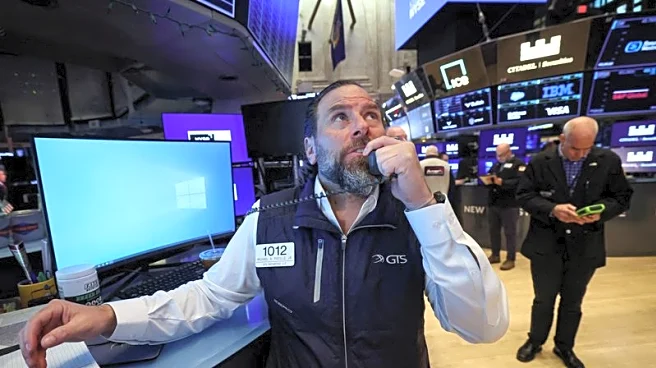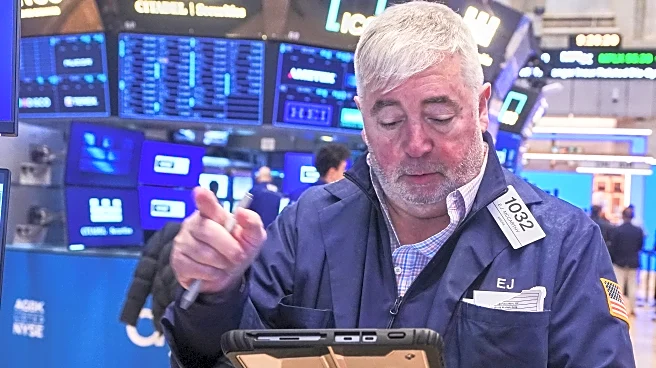What's Happening?
President Trump has taken unprecedented steps in intervening in corporate affairs, including acquiring a 10% stake in Intel and imposing revenue cuts on Nvidia and AMD for sales to China. These actions represent a departure from traditional free market capitalism, with the government directly influencing corporate leadership and operations. The administration's involvement extends to sectors like technology and hospitality, as seen in the rebranding controversy with Cracker Barrel. Trump's approach is characterized by direct negotiations and demands for financial contributions from companies, raising questions about the role of government in private enterprise.
Why It's Important?
These interventions challenge the foundational principles of the American economy, which traditionally favors minimal government interference in corporate affairs. By taking stakes in companies and imposing specific taxes, the administration risks distorting market dynamics and undermining investor confidence. This could lead to inefficiencies in capital allocation and hinder innovation, as companies may prioritize compliance over competitiveness. The broader impact includes potential shifts in international trade relations and the perception of the U.S. as a reliable economic partner. Stakeholders in affected industries may face increased uncertainty and pressure to align with government directives.
What's Next?
The administration's actions may prompt legal and political challenges, as stakeholders seek to protect free market principles. Companies may need to navigate complex regulatory landscapes and adapt to new government expectations. The long-term implications could include changes in corporate governance and investment strategies, as businesses assess the risks of government intervention. Political leaders and advocacy groups may push for legislative reforms to safeguard economic freedoms and prevent further encroachments on private enterprise.
Beyond the Headlines
The government's involvement in corporate affairs raises ethical and strategic questions about the balance between national interests and economic autonomy. It highlights a potential shift towards protectionism and state capitalism, with implications for global competitiveness. The cultural impact includes a reevaluation of American values, as the nation grapples with the tension between individualism and collective action. These developments may influence future policy debates and shape the trajectory of U.S. economic governance.










